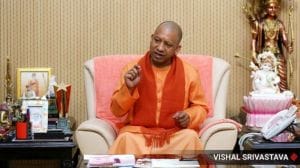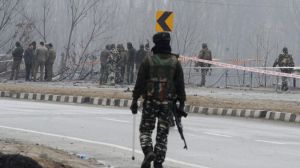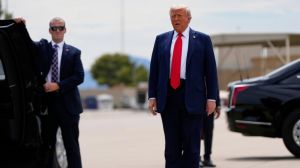Hi-tech sticker for your car in the New Year is coming unstuck
Come February 28 and the Government has an ambitious plan to make you feel extra safe. From that date on, any new vehicle you buy has to hav...

Come February 28 and the Government has an ambitious plan to make you feel extra safe. From that date on, any new vehicle you buy has to have what the Government calls a high-security registration plate (HSRP)—arguably the most hi-tech in the world to prevent your car being stolen or the plate being tampered with. For those of you who already have a vehicle, you will have to switch in two years.
Sounds good. But there’s a problem.
The plan is threatening to come unstuck because of a rash of legal disputes in High Courts across the country—literally from Kerala to Jammu and Kashmir. All swirling around Mumbai-based businessman Nitin Shah, and his company Shimnit Utsch, which is expected to corner a dominant share of the HSRP market.
What is certainly not helping in this high-stakes project—each plate costs an average of Rs 700, there are 5 crore vehicles in the country, 30 lakh added every year—is the fact that Shah is chargesheeted by the Delhi Police in a murder case along with notorious gangster Babloo Srivastava. But more of that later.
|
The Sunday Express asked Minister of State for Road Transport B C Khanduri and Nitin Shah for their comments regarding the current controversy. |
The Sunday Express has gone through extensive court records to find out what led to this controversy, ironically involving the Ministry of Road Transport and Highways which has earned credit for the way in which it has handled the National Highway project.
An update of the case, in brief:
• The scheme, first notified in March 2001, required every state to allow only one manufacturer to supply the plates for the entire state. And slipped in a clause making it compulsory for bidders to have a ‘‘five-country’’ experience.
• However, the technology the Government specified is used in barely a dozen countries across the world: Sri Lanka, Armenia, Columbia, Congo, Curacao, Iraq, ‘‘Palestine,’’ Malta, Oman, Uganda and Zambia.
• Nitin Shah, who is currently the biggest supplier of reflective road signs, floated a joint venture Shimnit Utsch. The name Shimnit is based on an abbreviated version of the name ‘Nitin Shah,’ Utsch is a German company which is the world’s leader in supplying these licence plates to the countries mentioned above.
• This led to the allegation that the tender process was tilted to suit Shah.
• A group of local companies, led by New Delhi-based Utsav Safety Systems, got together as the Association of Registration Plates Manufacturers and went to courts across the country advocating an ‘‘open-market’’ system.
• 11 states and two UTs floated tenders but the high courts either passed stay orders or directed that the selection of the bidder would be subject to the outcome of the litigation. The states which found themselves in such a legal limbo included Maharashtra, Kerala, J-K, Madhya Pradesh, Himachal Pradesh, Punjab, Haryana, Rajasthan and Nagaland.
• Last month, the Union Ministry of Road Transport and Highways had to issue an official memo saying that states ‘‘should not frame the tender provisions in such a manner that the same may look pre-determined to favour a particular set of companies.’’
• Another association formed by Shimnit Utsch and other manufacturers with German links persuaded the Supreme Court earlier this month to stay the proceedings in various High Courts and transfer all the cases to itself. Hearing is scheduled to resume in January.
Meanwhile, Shah has another headache going. A chargesheet filed by the Delhi Police alleges that Babloo Srivastav, at Shah’s behest, plotted the 1992 murder of one Lalit Suneja, who was a former employee of Shah.
Shah and Suneja were alleged to have had a disagreement over money. According to the chargesheet, the murder occurred after Suneja complained to the police that he feared a threat to his life from Shah. Shah claims Suneja’s complaint is a forgery to frame him.
The last hearing of the case in the court of the additional sessions judge, Aruna Suresh, was on Dec 9. The next hearing is on Jan 6, when Shah will also be in the thick of the legal battle in the SC over the licence plates.
Photos





- 01
- 02
- 03
- 04
- 05


























